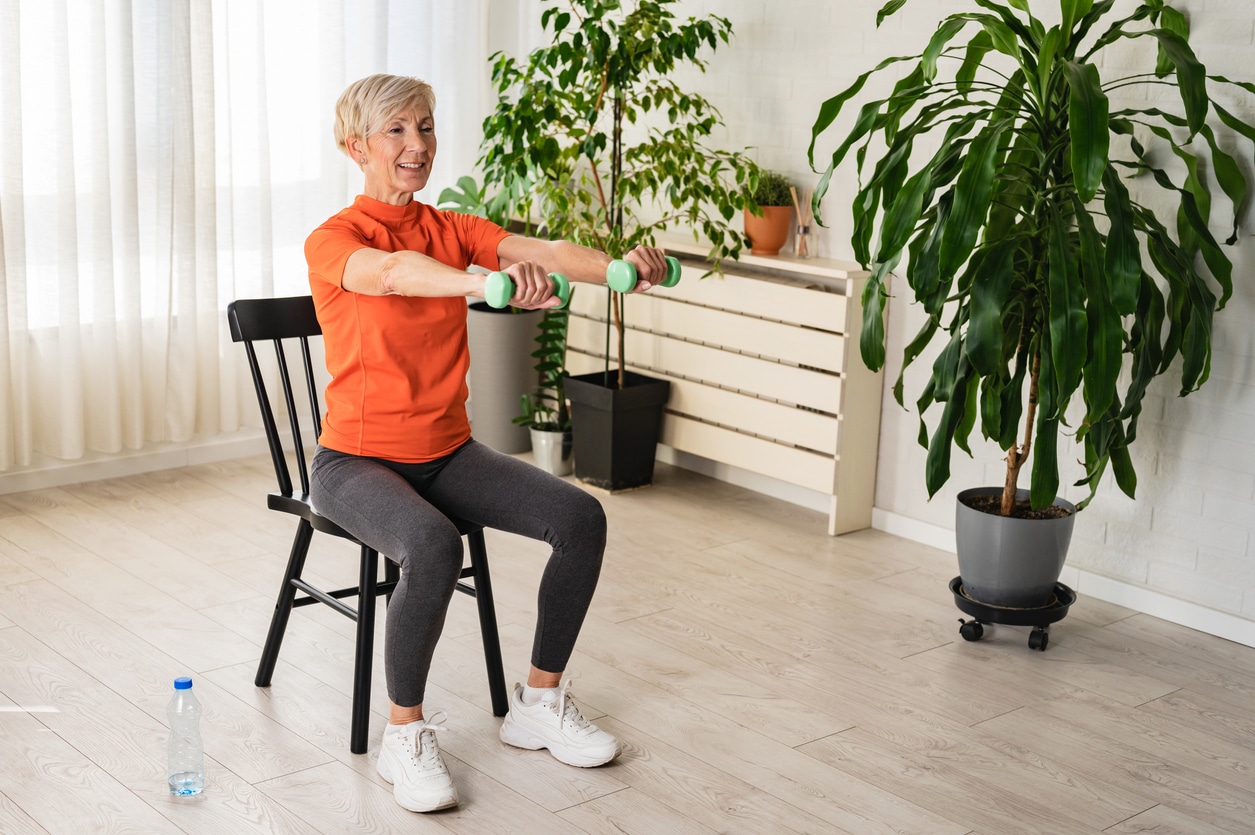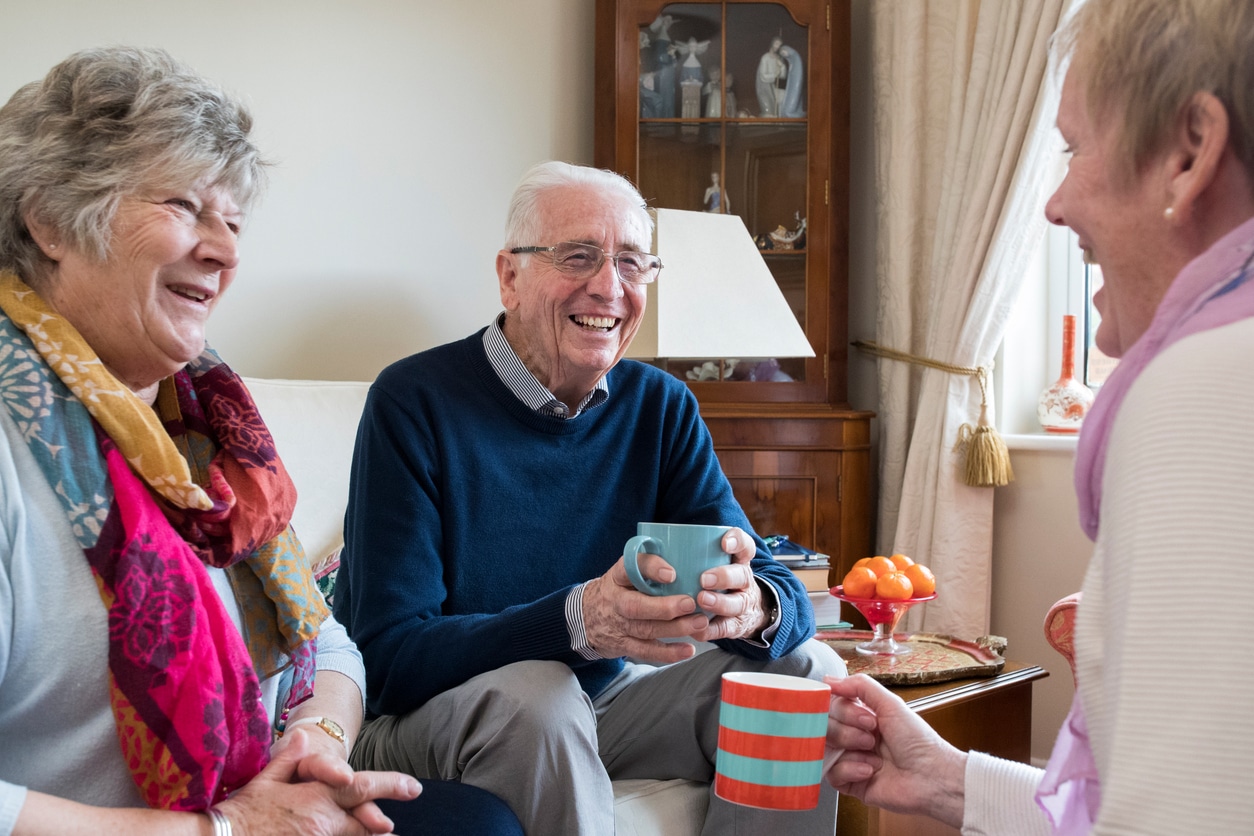Memory loss isn’t inevitable, though many of us may experience a little more trouble remembering as we get older. Wondering how to keep your brain sharp as you age? Here are seven tactics to try!
How To Improve Brain Health
We’ve collected seven strategies to help your brain stay healthy as you get older.
1. Stay socially active
An active social life – in person or even virtually – helps us feel connected, stimulates our brains with conversation, and can reduce the cognitive effects of depression and stress. We can also get the same benefits from interacting with strangers by volunteering and attending events.
2. Reduce stress
Constant stress has an impact on our brains. As much as you can, take steps to reduce the stress in your life. Engaging in hobbies is a great de-stressor, as is spending time with pets (or volunteering at the animal shelter). Rest is also a crucial factor in feeling less stressed out, so take those naps and make sure you’re sleeping well at night. If you’re not, talk to your primary care provider because sleep disruption can be a symptom of serious conditions and is often treatable.
3. Make lists
Making lists isn’t exactly a new idea, but there many new ways to do it! List-making helps you remember what needs to get done and when, and makes it easy to prioritize tasks. Paper lists are still the standard for a lot of us, but plenty of people make and keep lists in word processing programs or using the notes function on their mobile devices. You can keep a digital list in the cloud so you can access it from anywhere (as long as you have a device and internet!). Another bonus: you can easily share a digital list with others. Making lists can also reduce worry over forgetting things.
4. Use reminders
Gentle reminders keep us on track, too. You can set an alarm on your mobile device to nudge you when it’s time to hydrate or to stand up and move. Set up online or paper calendars with dates like birthdays, bill payments, etc. Paper sticky notes help us remember “in context.” For example, a sticky note on the back door can help you remember to turn off the porch light or take out the garbage. Or put a note by the sink to remind you to take your medicine. If you live with other people, consider assigning a color to each person to avoid confusion. These helpful reminders take away some of the stress over keeping up with things.
5. Train your brain
Keeping our brains active can strengthen memory recall. Engaging in activities like making art (including scrapbooking and doodling), reading, cooking, doing jigsaw puzzles and word games, gardening, and playing strategy games like chess or bridge. Balance moves and complex exercises also give our brains a good workout. Thinking about using a memory app? They won’t hurt, but there’s no scientific research showing they help. Check out more brain exercises.
6. Learn something new
Learning is great brain exercise. Picking up a new language is one of the best workouts, but any topic that’s new to you engages your mind and keeps it sharp. And it’s never been easier to find learning opportunities. Local organizations offer classes (some free, some for a fee) or you can find online learning options so you can learn from experts everywhere without leaving your home. trying a new recipe counts, too! Get some ideas for tasty dishes here.
7. Talk to your healthcare provider
We’re all self-conscious about forgetfulness, and sometimes that keeps us from mentioning it to our nurses and doctors. Speak up! If you experience increased forgetfulness or confusion, make an appointment so you can get help if you need it.
Don’t disregard professional medical advice, or delay seeking it, because of what you read here. This information is not intended as a substitute for professional consultation, diagnosis or treatment; it is provided “as is” without any representations or warranties, express or implied. Always consult a healthcare provider if you have specific questions about any medical matter, and seek professional attention immediately if you think you or someone in your care may be experiencing a healthcare condition or medical emergency.




